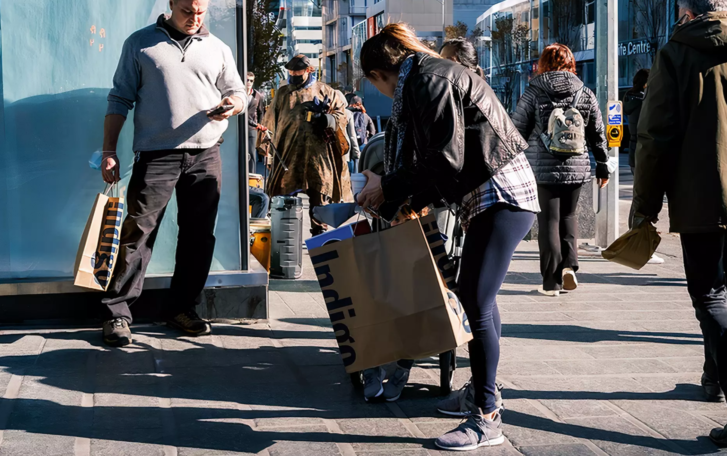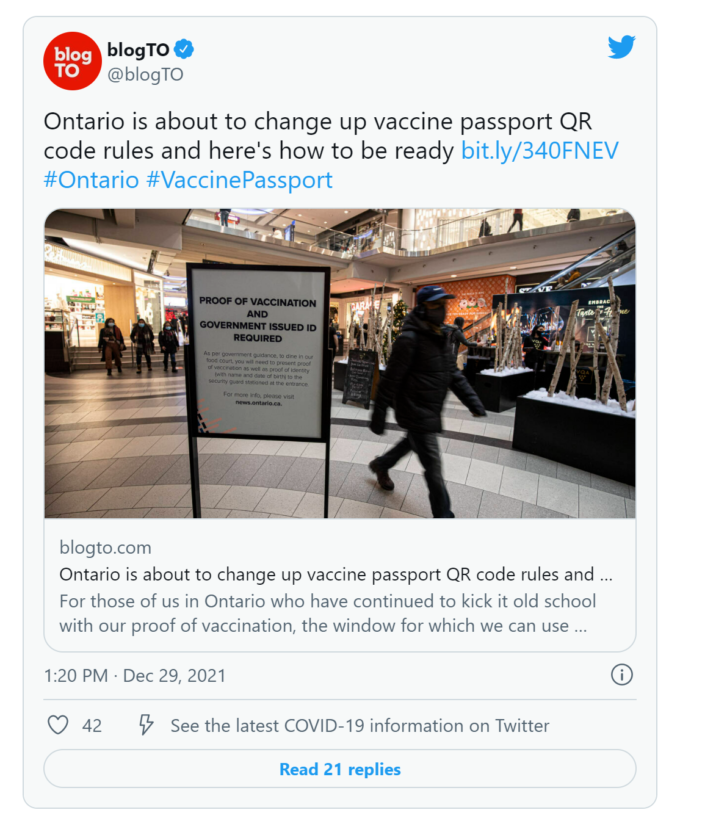This post is also available in: 简体中文 繁體中文
After a Hunger Games-esque start to the COVID-19 booster shotr ollout in Ontario, more than 40 per cent of residents aged five and up have now managed to get their third dose as leaders continue to urge the public to do so in the face of the Omicron variant.
The province’s “boost up” campaign has been going strong since eligibility was expanded to all adults more than a month ago, with some groups even lining up for their fourth jabs already.

With this in mind, those who haven’t yet gotten boosted (or have no intention to) fear that the government’s stringent proof-of-vaccination policies to enter indoor public places such as restaurants and event venues might soon change to necessitate that third shot — and it is indeed something the province’s top health officials are now calling for.
In an interview with CBC News over the weekend, Dr. Peter Juni, the head of the Ontario COVID-19 Science Advisory Table, said that while he believes “two doses of the vaccine continue to protect quite well against hospital and ICU admissions… there’s absolutely no relevant protection against infection.”
He then proceeded to suggest that the province amend what it considers to be “fully vaccinated” to now mean someone who’s had three COVID-19 inoculations, not just two.

This was something that some had speculated would likely be part of the lockdown restrictions that went into effect on Jan. 5 (and are beginning to ease starting Jan. 31), and though the change never actually happened, Premier Doug Ford has not ruled it out for the future.
“Not right at this point,” Ford said last week when asked if proof of vaccination rules would be changing, hinting that it could be a step in the weeks to come as he advised constituents to “boost up as soon as you can.”
Meanwhile, countries such as France, Greece and the United Arab Emirates already require tourists to get their third jab, and the head of Moderna Canada has said that a yearly shot against the virus could become a reality.
As of Jan. 4, only the QR code version of proof of vaccination — not the physical or digital Ministry of Health document initially given after immunization appointments — is acceptable to enter settings deemed high-risk in Ontario.
And, the government did not provide a timeline of when vaccine passport mandates might end in its latest reopening plan.
Article From: Blog TO
Lead photo by Dominic Bugatto
Author: Becky Robertson

